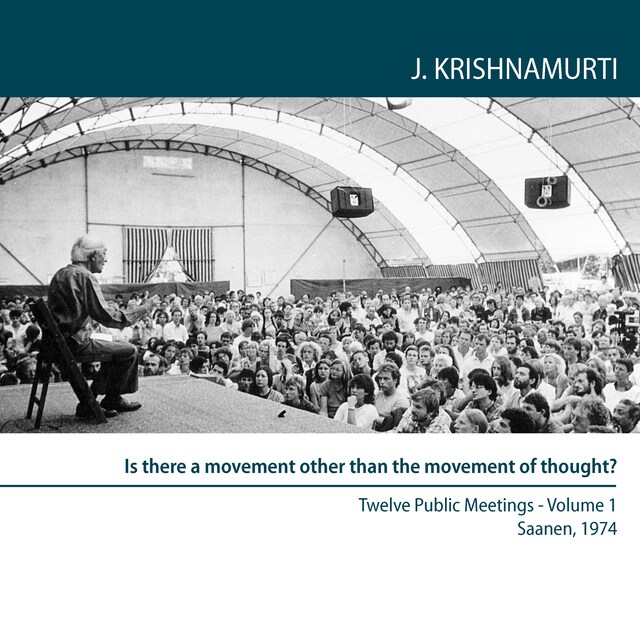
Is there a movement other than the movement of thought?
Twelve Public Meetings, Saanen, Switzerland, 1974
Description of the book
Public Talks 1. What is the operation of thought? - 14 July 1974 Duration: 84 minutes • In the world around us and inside us, is there a relationship between the inner and the outer? • Are you free to listen or do you listen with interpretation and prejudices? • Do I observe the content of my consciousness as an outsider? Can one observe the content without choice? • If you look with eyes that are divided is there not conflict between you and another? • Is division between the observer and the observed? • Is it intelligent for thought to create and maintain division while talking about peace? • Is there an intelligence which is not cunning and is not the function or result of thought? Questions from the audience followed the talk. 2. Is there energy not based on idea or ideology? - 16 July 1974 Duration: 84 minutes • Why is thought divisive? • The desire to change in a particular direction gives an energy that is divisive. • Will you free the mind taking time, through analysis, or can you look totally and therefore be totally free? • Does choiceless rejection of the false give a different kind of energy? • Does a foundation give me direction or does it bring confusion? • Is the operation of intelligence insight? Questions from the audience followed the talk. 3. Can thought bring order? - 18 July 1974 Duration: 87 minutes • Are thoughts, feelings, reactions and relationships merely mechanical? Is there any other movement? • Where there is a cause there is time and so living becomes relative. • Is my relationship with another based on opinions, memories, demands and sexual appetites? • Is there a way of living which has no cause? • Do I actually see disorder or only its description? • Is it only when the 'me' is non-existent that I am related? • What takes place when the mind has order and a sense of total relationship? • Can the mind be free of the word to look and discover its disorder? Questions from the audience followed the talk. 4. Can the mind not be a slave to knowledge? - 21 July 1974 Duration: 93 minutes • When consciousness invents a super-consciousness is it a part of thought aware of the past? • Is there a part of the brain which has not been touched by the known? • Is it our education to escape from 'what is' through ideals? • Has the mind been trained to operate and function in the field of the known? • Observing the movement of thought and its source, can one come upon some thing beyond thought? • Is time required to see the reality and non-reality of knowledge? Questions from the audience followed the talk. 5. Wisdom comes through the understanding of suffering - 23 July 1974 Duration: 86 minutes • Do we respond to the whole field of existence? Must not there be love to do that? • To love, to be responsible for the whole, one must go beyond suffering. • Can we know the nature, structure and function of suffering? • Is isolation one of the major causes of suffering? • Is attachment, which denies freedom, a cause of suffering? • In the love of the whole the particular comes in, but not the other way around. • Can we be sensitive to beauty if we are psychologically hurt? • Can the mind be aware of hurt and not react at the conscious or unconscious level? Questions from the audience followed the talk. 6. Are you seeking security in a concept? - 25 July 1974 Duration: 80 minutes • Love and compassion is denied totally when you seek security in neurotic concepts. • Is there permanent security in relationship? • The mind is sane, healthy, whole and acts totally when it realizes there is nothing permanent.


